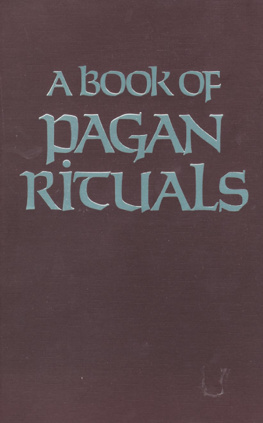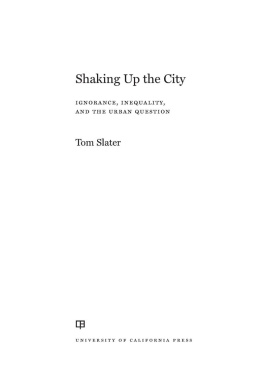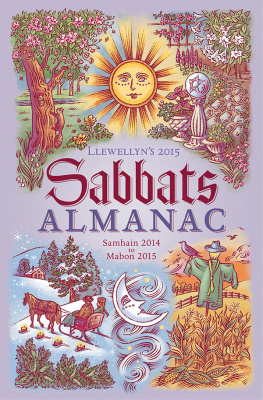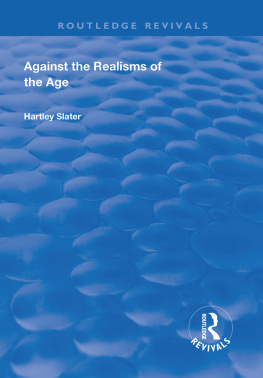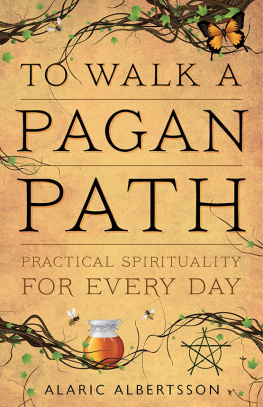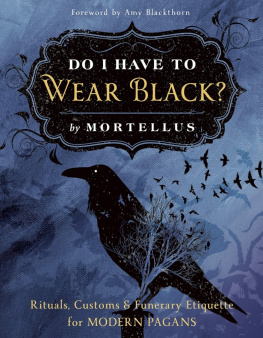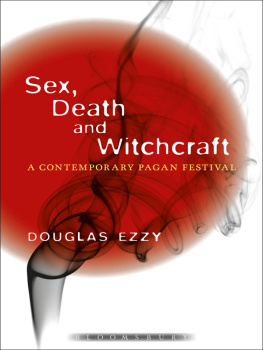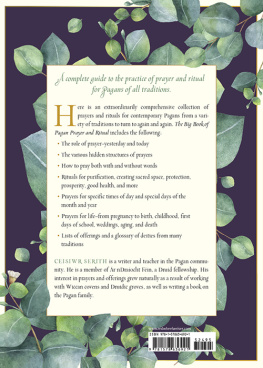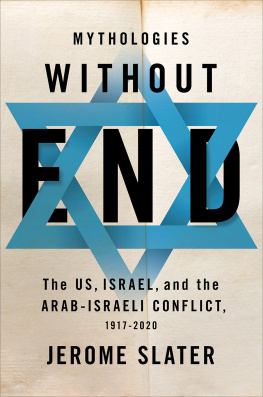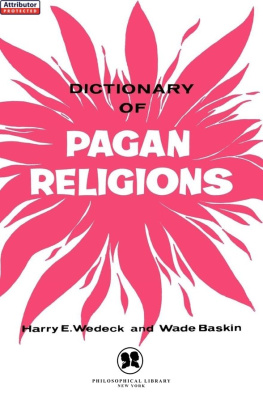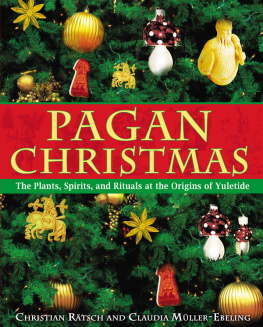Herman Slater - A Book of Pagan Rituals
Here you can read online Herman Slater - A Book of Pagan Rituals full text of the book (entire story) in english for free. Download pdf and epub, get meaning, cover and reviews about this ebook. year: 1978, publisher: Red Wheel Weiser, genre: Home and family. Description of the work, (preface) as well as reviews are available. Best literature library LitArk.com created for fans of good reading and offers a wide selection of genres:
Romance novel
Science fiction
Adventure
Detective
Science
History
Home and family
Prose
Art
Politics
Computer
Non-fiction
Religion
Business
Children
Humor
Choose a favorite category and find really read worthwhile books. Enjoy immersion in the world of imagination, feel the emotions of the characters or learn something new for yourself, make an fascinating discovery.
- Book:A Book of Pagan Rituals
- Author:
- Publisher:Red Wheel Weiser
- Genre:
- Year:1978
- Rating:4 / 5
- Favourites:Add to favourites
- Your mark:
- 80
- 1
- 2
- 3
- 4
- 5
A Book of Pagan Rituals: summary, description and annotation
We offer to read an annotation, description, summary or preface (depends on what the author of the book "A Book of Pagan Rituals" wrote himself). If you haven't found the necessary information about the book — write in the comments, we will try to find it.
A Book of Pagan Rituals — read online for free the complete book (whole text) full work
Below is the text of the book, divided by pages. System saving the place of the last page read, allows you to conveniently read the book "A Book of Pagan Rituals" online for free, without having to search again every time where you left off. Put a bookmark, and you can go to the page where you finished reading at any time.
Font size:
Interval:
Bookmark:
First published in one volume in 1978 by
Samuel Weiser, Inc.
Box 612
York Beach, ME 03910-0612
04 03 02 01 00
18 17 16 15 14 13
Copyright 1978 Samuel Weiser, Inc.
All rights reserved. No part of this publication may be reproduced or transmitted in any form or by any means, electronic or mechanical, including photocopying or information storage and retrieval systems, without permission in writing from Samuel Weiser. Reviewers may quote brief passages.
First published in two volumes in 1974 by Earth Religious Supplies
ISBN 0-87728-348-6
BJ
Printed in the United States of America
The paper used in this publication meets the minimum requirements of the American National Standard for Permanence of Paper for Printed Library Materials Z39.48-1984.


The Pagan Way is, as Occultists put it, On the right-hand path, and is devoted to the worship of that which is good in man and nature. Satanism, black magic and the like are actively opposed - we know that such cults are destructive in their effects and contrary to the evolutionary advance of humankind. The rituals of the Pagan Way cannot be twisted to harmful ways or purposes. Any attempt to do so would have very serious consequences for anyone who tried.

PART ONE
BASIC PAGAN RITUALS

PART TWO
ADVANCED PAGAN RITUALS

Pagan Musing
We're of the old religion, sired of Time, and born of our beloved Earth Mother. For too long the people have trodden a stony path that goes only onward beneath a sky that goes only upwards. The Horned God plays in a lonely glade, alone, for the people are scattered in this barren age, and the winds carry his plaintive notes over deserted heaths and reedy moors and into the lonely grasses! Who knows now the ancient tongue of the Moon? And who speaks still with the Goddess? The magic of the land of Linen and the old pagan gods have withered in the dragon's breath; the old ways of magic have slipped into the well of the past, and only the rocks now remember what the moon told us long ago, and what we learned from the trees, and the voices of the grasses and the scents of flowers.
We're pagans and we worship the pagan gods, and among the people there are witches yet who speak with the moon and dance with the Horned One. But a witch is a rare pagan in these days, deep and inscrutable, recognisable only by her own kind by the light in her eyes and the love in her breast, by the magic in her hands and the lilt of her tongue and by her knowledge of the real.
The Wiccan way is one path. There are many; there are pagans the world over who worship the Earth Mother and the Sky Father, the Rain God and the Rainbow Goddess, and the Little People in the mists on the other side of the vale. A pagan is one who worships the goddesses and gods of nature, whether by observation or by study, whether by love or admiration, or whether in their sacred rites with the Moon, or the great festivals of the Sun.
Many suns ago, as the pale dawn of reason crept across the pagan sky, man grew out of believing in the godshe has yet to grow out of disbelieving in them. He who splits the Goddess on an existence-nonexistence dichotomy will earn himself only paradoxes, for the gods are not so divided and neither are the lands of the Brother of Time. Does a mind exist? Ask her and she will tell you yes, but seek her out, and shell elude you. She is in every place, and in no place, and you'll see her works in all places, but herself in none. Existence was the second-born from the Mother's womb and contains neither the first-born nor the unborn. Show us your mind, and we'll show you the gods! No matter that you can't, for we can't show you the gods. But come with us and the Goddess herself will be our love and the God will call the tune. A brass penny for your reason! For logic is a closed ring, and the child doesn't validate the Mother, nor the dream the Dreamer. And what matter the wars of opposites to she who has fallen in love with a whirlwind, or to the lover of the arching rainbow?
But tell us of your Goddess as you love her and the gods that guide your works and we'll listen with wonder, for to do less would be arrogant. But we'll do more; for the heart of man is aching for memories only half forgotten, and the Old Ones, only half unseen. We'll write the old myths as they were always written, and we'll read them on the rocks and in the caves and in the deep of the greenwood's shade, and we'll hear them in the rippling mountain streams and in the rustling of the leaves, and we'll see them in the storm clouds, and in the evening mists. We've no wish to create a new religionfor our religion is as old as the hills and older, and we've no wish to bring differences together. Differences are like different flowers in a meadow, and we are all one in the Mother.
What need is there for a pagan movement, since our religion has no teachings and we hear it in the wind and feel it in the stones and the moon will dance with us as she will? There is a need. For long the Divider has been among our people, and the tribes are no more. The sons of the Sky Father have all but conquered nature, but they have poisoned her breast and the Mother is sadfor the songbirds, the fish, and the butterflies are dying. And the night draws on. A curse on the conquerors! But not of us, for they curse themselvesfor they are of nature, too. They have stolen our magic and sold out to the mindbenders and the mindbenders tramp a maze that has no outletfor they fear to go down into the dark waters, and they fear the real for the One who guards the path.
Where are the pagan shrines? And where do the people gather? Where is the magic made? And where are the Goddess and the Old Ones? Our shrines are in the fields and on the mountains, and in the stars, the wind, deep in the greenwood and on the algal rocks where two streams meet. But the shrines are deserted, and if we gathered in the arms of the Moon for our ancient rites to be with our gods as we were of old we would be stopped by the dead who now rule the Mother's land and claim rights of ownership on the Mother's breast, and make laws of division and frustration for us. We can no longer gather with the gods in a public place and the old rites of communion have been driven from the towns and cities ever deeper into the heath where barely a handful of heathens have remained to guard the old secrets and enact the old rites. There is magic in the heath far from the cold grey society, and there are islands of magic hidden in the entrails of the metropoles behind closed doors. But the people are few, and the barriers between us are formidable. The Old Religion has become a dark way; obscure, and hidden in the protective bosom of the night. Thin fingers turn the pages of a book of shadows while the sunshine seeks in vain his worshippers in his leafy glades.
Here, then, is the basic reason for a Pagan Way; we must create a pagan society wherein everyone shall be free to worship the goddesses and gods of nature. The relationship between a worshipper and her gods shall be sacred and inviolable, provided only that in the love of one's own gods, one does not curse the names of the gods of others.
It's not yet our business to press the law-makers with undivided endeavor to unmake the laws of repression and, with the Mother's love, it may never become our businessfor the stifling tides of dogmatism are at last in ebb. Our first work and our greatest wish is to come together, to be with each other in our tribesfor we haven't yet grown from the Mother's breast to the stature of gods. We're of the earth, and kin to all the children and impoverished of the old genetic pool. The Red Child lives yet in America; the old Australians are still with their nature gods; the Black Child has not forsaken the gods; the Old Ones still live deep in the heart of Mother India, and the White Child has still a foot on the old Wiccan way; but Neanderthaler is no more and her magic faded as the Lli and the Archan burst their banks and the ocean flowed in to divide the isle of Erin from the Land of the White Goddess.
Next pageFont size:
Interval:
Bookmark:
Similar books «A Book of Pagan Rituals»
Look at similar books to A Book of Pagan Rituals. We have selected literature similar in name and meaning in the hope of providing readers with more options to find new, interesting, not yet read works.
Discussion, reviews of the book A Book of Pagan Rituals and just readers' own opinions. Leave your comments, write what you think about the work, its meaning or the main characters. Specify what exactly you liked and what you didn't like, and why you think so.

